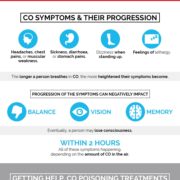How Can Healthcare Information Systems Eliminate Diagnostic Errors?

When you visit a medical professional for your problems, you want to ensure that you get the correct diagnosis. Otherwise, you’ll receive the wrong treatment plan and won’t remedy your issue. This situation can be extremely frustrating and cause you to go without the proper treatment plan for your ailment.

Fortunately, healthcare information systems have several ways that they can eliminate diagnostic errors to ensure you get the correct treatment. Please continue reading to learn how healthcare professionals work to eliminate these errors.
Building Knowledge
Healthcare professionals must rely on constantly changing information and stay up to date to give the correct diagnosis. For example, when the COVID-19 pandemic hit, healthcare professionals had to adjust quickly to ensure patients received proper care.
Experts in the field work constantly to ensure that they have the most up-to-date information available for doctors to examine. When a team of professionals works to ensure correct information, patients don’t have to worry much about receiving the wrong diagnosis.
Moreover, many healthcare providers are using innovative solutions to ensure that patients are identified accurately to prevent patient mixups, patient data integrity issues, and diagnostic errors. For instance, RightPatient, a leading touchless biometric patient identification platform, is used by several healthcare providers across the US. It uses patient photos to identify their EHRs accurately. Whenever a new patient comes in, RightPatient takes a photo and attaches it with the patient’s EHR, and during subsequent visits, returning patients just need to look at the camera – the platform takes a photo, runs a biometric search, and provides the accurate EHR.
How Diagnostic Errors Happen
Unfortunately, there are situations where a patient might receive the wrong diagnosis and wrong treatment plan. Patients and doctors must work hard to ensure these diagnostic errors don’t occur so patients can stay healthy. The following are several reasons diagnostic errors have occurred in the past.
Not Enough Time To Monitor Symptoms
A doctor must take the time to monitor a patient’s symptoms. For example, when a doctor can monitor symptoms frequently, they can give a proper diagnosis. Alternatively, if a patient gives a doctor information by word of mouth, then there is a chance that information gets misconstrued.
Inexperienced Doctor
When a doctor is new to the field, there’s a higher chance that they will hand out an incorrect diagnosis. If you’re a patient seeking a doctor for treatment for your ailment, then it’s important that you research your healthcare professional to ensure that they have plenty of experience. An experienced doctor has seen your ailment before and knows what diagnosis to provide.
No Follow Up Appointments
Healthcare professionals must schedule follow-up appointments to ensure the treatment plan works for the patient. It is also imperative that patients attend these follow-up appointments to give accurate treatment information to the doctor. If a doctor doesn’t schedule a follow-up appointment, they have no way to monitor the patient’s treatment plan.
Lack Of Testing
The final reason diagnostic errors occur in Healthcare is the lack of testing. Some lab tests can be expensive, and patients can only sometimes afford them if they have insurance. If you can afford thorough lab tests for your ailment, it’s best to go through this testing to get the proper treatment plan.
The Importance Of Patient and Doctor Communication
Doctors and patients must keep open communication and provide accurate information to each other. You need to give your doctor the correct information when they ask to avoid receiving the wrong treatment plan.
In addition, certain medications can interfere with each other and create dangerous health conditions, so be open and honest about the medications you take to your doctor.
Dementia is a common condition people get as they age, and it’s important to maintain open communication with your doctor to receive a correct dementia diagnosis. Please read more to learn about an accurate dementia evaluation.
What To Do If You Receive The Wrong Treatment Plan
If you receive the wrong treatment plan for your ailment, you must immediately communicate this problem with your doctor. Call your doctor’s office and inform them about what’s wrong with the treatment and the symptoms you experience. The last thing you want to do is go too long without the right treatment and risk your condition worsening.









Leave a Reply
Want to join the discussion?Feel free to contribute!